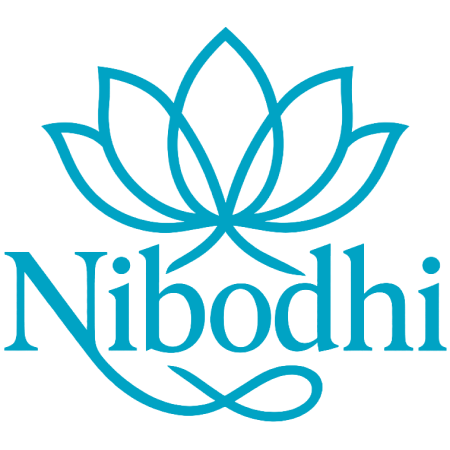Understand mental health through Ayurveda’s timeless wisdom

This post is for general informational purposes only and may include affiliate links. It is not intended as medical advice. We may earn a commission through qualifying purchases. Read the full disclaimer.
A new view on mental health
Mental health is a global concern, a deeply personal struggle, and for many, a search for answers that conventional models have failed to offer lasting solutions or healing. In this article, we explore the Ayurvedic approach to mental health. A perspective rooted in reconnecting with balance, spirit, and our inner wisdom rather than focusing solely on symptom relief. This ancient system views mental suffering as a wake up call, an invitation to heal at the deepest levels of mind, body, and soul.
Mental health as a signal
Today’s world is saturated with external stimulation and internal unrest. Burnout, anxiety, trauma, and depression aren’t rare exceptions. They’re becoming the norm. And while pharmaceuticals can absolutely save lives, too often they’re prescribed without ever asking the most important questions: “What’s happening in your life?” "How are your relationships?" or “Why are you sad?”
Our current model of mental health care is a system that values symptom suppression over root-cause exploration. But Ayurveda invites us back to the source, literally. It doesn't treat sadness with a pill or overwhelm with distraction. It asks us to look inward, to get curious about the signals our body and mind are sending. From an Ayurvedic lens, mental health challenges are not failures. They are part of a greater feedback loop. They are your system’s way of saying, “Something is out of harmony.”
And that’s the heart of this teaching: the idea that mental health is not a fixed state but a living reflection of how in-sync we are with our nature, purpose, and the rhythms of life itself.
The Ayurvedic framework of mind
Ayurveda sees the mind as a part of the larger ecosystem, woven into our entire being. It acknowledges the interplay between:
- Manas – The reactive, sensory mind
- Buddhi – The intellect and power of discernment
- Ahamkara – The ego, or sense of individual self
- Atman – The undistorted witness, pure awareness
Together, these form the inner instruments of consciousness. When they’re in alignment, we feel clarity, direction, and connection. When they’re misaligned, when the reactive mind is overstimulated or the ego is leading the show, suffering follows.
Mental health is about how these inner instruments interact. It’s about whether they’re in service to your highest self, or spinning out of balance from unresolved pain, outdated programming, and disconnected living.
Emotions as divine messengers
In Ayurveda, emotions are sacred signals, part of a vast interplay between your unique constitution, your environment, and the elements.
- Sadness? It might be your system asking you to pause and grieve something unprocessed.
- Anxiety? It could be pointing to overstimulation or a vata imbalance in the mind.
- Anger? Maybe it's the fire of pitta being pushed too far, toward control, criticism, or perfectionism.
Each emotional state is a call to realign. Not to shame or suppress, but to listen. Because in Ayurveda, every thought, every mood, is part of the great dance of life. The goal isn’t to stop the dance. The goal is to learn the steps.
The three gunas and your mental landscape
A core concept in Ayurvedic psychology is the gunas, three qualities of nature that influence all of life, including our minds:
- Sattva (Clarity and harmony) – Reflects balance, truth, and inner peace. When sattva dominates, the mind is calm, compassionate, and joyful.
- Rajas (Activity and passion) – Drives action and ambition. When out of balance, it creates restlessness, anxiety, and desire-fueled behavior.
- Tamas (Inertia and darkness) – Gives structure and rest. When imbalanced, it leads to confusion, laziness, depression, and denial.
We all have all three gunas present, just like we all have the doshas (vata, pitta, kapha). But the goal is to consciously cultivate more sattva, use rajas wisely, and reduce the excess tamas that clouds perception.
Too much rajas and you’re always chasing something outside yourself. Too much tamas and you’re stuck in a dense fog. Ayurveda teaches that the ideal state is one where sattva leads, illuminating the soul through the mind like light through a clear lens.
Know your mental constitution
Your physical constitution influences your mind, and vice versa. Ayurveda calls this manas prakriti, your mental nature. Here’s how each dosha tends to show up mentally:
- Vata mind (Creative and quick-thinking) – When balanced, it’s imaginative and curious. When imbalanced, it spirals into anxiety, fear, and catastrophizing.
- Pitta mind (Sharp and focused) – Balanced, it’s discerning and intelligent. Out of balance, it turns critical, impatient, angry, or perfectionistic.
- Kapha mind (Calm and grounded) – In balance, it's stable and compassionate. In excess, it becomes lethargic, overly attached, or emotionally shut down.
Understanding your own mental tendencies is about insight. It’s how you learn to support your mind with the right diet, routines, herbs, and lifestyle that nurture your unique path to balance.
👉 Take the guna quiz and discover your mental constitution.
Strengthening the mind’s channels
According to Ayurveda, the mind operates through subtle channels called manovahasrotas, rivers that carry thoughts, impressions, and emotions. When these become blocked, due to trauma, toxins, or overstimulation, we see mental symptoms emerge: insomnia, confusion, anxiety, depression.
So much of modern life clogs these subtle channels. Violent TV shows, curated social media posts, over-processed foods, constant noise, emotional repression, lack of connection to nature all contribute.
To purify these channels, Ayurveda offers powerful tools:
- Chanting and sound healing – especially OM, to tone the vagus nerve and restore harmony
- Breathwork – to regulate the nervous system and quiet the reactive mind
- Connection to nature – sunlight, silence, beauty, and earth-based rituals
- Heart-centered living – because the mind’s true home, according to Ayurveda, is in the heart
When the heart is open and sattvic, it becomes a stable seat of consciousness. And when the heart is wounded, mental clarity suffers. Healing the mind requires healing the heart.
Going against inner wisdom
Ayurveda has a term called prajnaparadha, an offense against inner wisdom. It’s when we know something is not right for us, but we do it anyway. Staying in toxic environments, ignoring the body’s needs, numbing our emotions with addictions are all forms of disconnecting from our intuitive truth.
We do it because we were never taught another way. But every time we ignore our inner knowing, we add another layer of friction to the psyche. Over time, the mind loses its ability to discern clearly. Anxiety and depression often follow.
Ayurveda is the lighthouse guiding our ships path back to alignment through awareness, routine, ritual, and compassion.
Healing requires processing
Another overlooked piece of the puzzle is digestion, not just of food, but of experience. Ayurveda calls this manas agni, the mental fire that helps us process emotion, learn from our experiences, stories, and release what no longer serves.
When manas agni is weak, emotions stay stuck. They ferment like undigested food, leading to mental toxicity such as rumination, grief, trauma loops, and cognitive fog.
To strengthen manas agni, try these practices:
- Journaling – Reflect on your inner world and emotional landscape
- Sacred dialogue – Speak with someone who listens without judgment
- Creative expression – Let art, music, or movement embody your truth
- Time in silence – Let your inner voice speak in the stillness
This is how we metabolize life, by giving it space to move through us.
The soul’s cry for alignment
When you’re not living your purpose, your svadharma, the soul aches. This can show up as apathy, disconnection, or addiction. And it makes perfect sense as our spirit was meant to shine. When it’s buried under roles, responsibilities, or fear-based conditioning, suffering emerges.
Ayurveda asks a deeper question: “What is your soul longing to express?” Healing, in this view, is a return to inner alignment, a remembrance of wholeness and connection.
Healing involves the courage to live in alignment with your truth, to soften the grip of ego, and to let the light of sattva guide your path. Therapies and medications may support the process, but the heart of the journey lies in reconnecting with your inner wisdom.
Remembering the light within
Ayurveda teaches that mental health is a dynamic relationship between your inner world and the life you live. It reflects how deeply you are attuned to your natural rhythms, your purpose, and your heart’s truth.
Peace is the path, not the destination. Your essence is peace, clarity, vitality, and joy. As you live more in harmony with your authentic self, your mental landscape becomes a mirror of that wholeness. This is the path of remembering who you are, and allowing that remembrance to guide you toward balance.
What I use and love
Want to know what I recommend for a healthier, happier life? Every product on Nibodhi’s Favorites is something I personally use, trust, and love. Take a look at my go-to wellness picks.
Join my free newsletter
Get quick daily wins, health insights, and science-backed wisdom for a healthier, calmer, and more radiant life. 5 New tips Every Thursday.

